Features
Operating to Jeddah in modern times
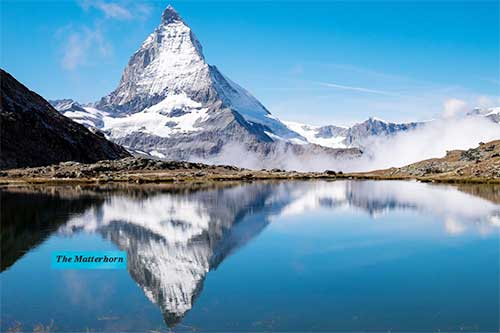
By Capt. G A Fernando,
RCyAF/ SLAF, Air Ceylon,
Air Lanka, Singapore Airlines and SriLankan Airlines
This has reference to Capt. Elmo Jayawardene’s and Mr Lionel Sirimanne’s (Uncle ‘Siri’ to most of us) articles regarding flights to Jeddah many moons ago with multiple night stops in the Douglas DC3 Dakota’s. Right at its inception in 1979, Air Lanka didn’t operate to or even in Saudi Arabian Air space. The two Boeing 707s plying between the Middle East and Europe used the more northern routes through Kuwait, Iraq, Jordan and Syria till the advent of the Iran-Iraq war. Then airlines were forced to stay south and fly westward across the Saudi Arabian Dessert and then go northwards from Hail. It was then that our pilots had to speak with Jeddah Control, whose radio coverage was mediocre at best and thus taxing their patience.
Today, the modern, ‘state of the art’ jet planes are capable of flying nonstop to Jeddah with no intermediate stops. Before they leave the ground, the pilots pre-programme their on-board computers on ground and they determine an imaginary ‘Green Line’ in the Airbuses or a ‘Magenta Line’ in the Boeings defining their proposed route. The displays provide them with a host of information. Amongst other things, how to proceed to their destination. They just follow that line in their navigation displays. Some say that the pilots have become aircraft operators and ‘children’ of that ‘computer generated line’. It has made flying more accurate.
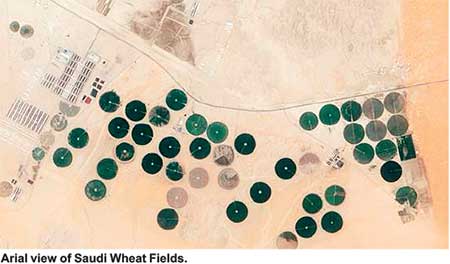 Our fights to ‘Jiddah’ (as some Sri Lankans would say) were associated with carrying fare-paying pilgrims to Mecca. Our timing had to be perfect during the ‘Haj’ due to build-up of air traffic through the years. Miss-timing our arrivals at the ‘Haj Terminal’ involved heavy fines for the airline as the Terminal building could accommodate a limited number of aircraft. By Bandaranaike International Airport (BIA) standards it was still a relatively very large amount.
Our fights to ‘Jiddah’ (as some Sri Lankans would say) were associated with carrying fare-paying pilgrims to Mecca. Our timing had to be perfect during the ‘Haj’ due to build-up of air traffic through the years. Miss-timing our arrivals at the ‘Haj Terminal’ involved heavy fines for the airline as the Terminal building could accommodate a limited number of aircraft. By Bandaranaike International Airport (BIA) standards it was still a relatively very large amount.
When approaching Jeddah, usually the leader of the group (Nade Gura) will ask the flight crew for the ‘Miquat Point’. This is the point at which the pilgrims should prepare themselves mentally and physically for the task at hand. It was marked in our Aviation route maps with a little triangle. The Captains would also allow them the use of the on board Public Address system to conduct their prayers. Being capable of direct flight, the airlines would fly across the Arabian sea of the Indian Ocean to Oman and then the Saudi Arabian desert, over many wheat farms tracing circular patterns of green. Not many know that at one time (1995) Saudi Arabia was almost self-sufficient in Wheat. The policy has changed since, as the circular, US style irrigation systems in the desert were depleting precious ground water.
Since the direct flight times from Colombo were relatively short, the crews were allowed to do a turnaround flights in accordance with the flight duty time limitations with an extra Captain on board on board providing relief and get back to Colombo.
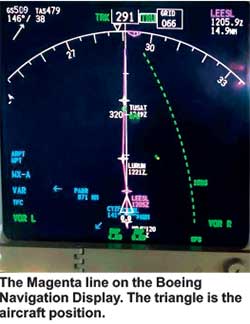 Flights from Singapore were longer and necessitated a night stop for the inbound crew. The off season frequency was once a week. As a result we had to stay one whole week in Jeddah. Since there was not much to do and the Five Star Hotel we ‘slipped’ in, had provided a crew room with cooking facilities, the crew would organise a shopping/ marketing party on the morning of the night after our arrival to buy food for the next six days. It was compulsory that all females wear an Abaya (a black garb provided by the hotel) over their clothes, when in public. One day, we met at the reception to go shopping, I noticed that some of the girls were wearing their short, shorts that could have normally been worn in Singapore under the Abaya. As some of them were on their first visit ever to Jeddah, being their Captain and the most senior member I had to advised them to exercise some decorum and change to a more acceptable dress as the Abaya’s didn’t cover up all their sins, especially on a windy day. Another time my Australian First Officer came down for the same exercise in a pair of shorts, showing off his knobby knees and that too did not seem like a good idea to me. So he was forced to do a quick change.
Flights from Singapore were longer and necessitated a night stop for the inbound crew. The off season frequency was once a week. As a result we had to stay one whole week in Jeddah. Since there was not much to do and the Five Star Hotel we ‘slipped’ in, had provided a crew room with cooking facilities, the crew would organise a shopping/ marketing party on the morning of the night after our arrival to buy food for the next six days. It was compulsory that all females wear an Abaya (a black garb provided by the hotel) over their clothes, when in public. One day, we met at the reception to go shopping, I noticed that some of the girls were wearing their short, shorts that could have normally been worn in Singapore under the Abaya. As some of them were on their first visit ever to Jeddah, being their Captain and the most senior member I had to advised them to exercise some decorum and change to a more acceptable dress as the Abaya’s didn’t cover up all their sins, especially on a windy day. Another time my Australian First Officer came down for the same exercise in a pair of shorts, showing off his knobby knees and that too did not seem like a good idea to me. So he was forced to do a quick change.
The girls (and boys) would cook every day and call the rest of us for Brunch and Dinner. Our allowances were based on the Hotel Coffee Shop Menu prices. This exercise would, after defraying the costs (deserts and all), came to a fraction of the Coffee shop prices thus providing home cooking, interesting company and a substantial saving for all. Only mad dogs and Englishmen went out in the midday sun!
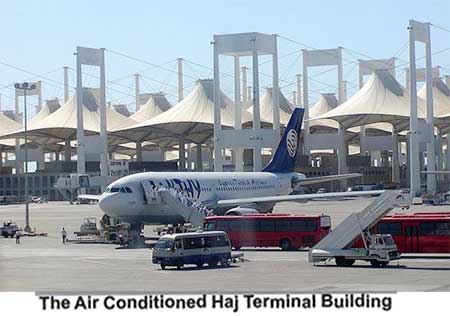 After one of these flight patterns, we took off one night in an Airbus A340-300 aircraft, from Jeddah to Singapore. Immediately after take-off, the standard operation procedure required us to select the wheels up, to reduce aerodynamic drag. We’ve been doing this for over a thousand times. This time, however, with an accompanying ‘ting’ a message came up on the computer display unit to say that the landing gear doors were not properly closed and as a result that there would be additional fuel burn and our destination, Singapore could not be reached. We then recycled the Landing Gear down and up, to see whether the situation would clear itself. The message remained the same. The most appropriate thing to do was to return to base (RTB).
After one of these flight patterns, we took off one night in an Airbus A340-300 aircraft, from Jeddah to Singapore. Immediately after take-off, the standard operation procedure required us to select the wheels up, to reduce aerodynamic drag. We’ve been doing this for over a thousand times. This time, however, with an accompanying ‘ting’ a message came up on the computer display unit to say that the landing gear doors were not properly closed and as a result that there would be additional fuel burn and our destination, Singapore could not be reached. We then recycled the Landing Gear down and up, to see whether the situation would clear itself. The message remained the same. The most appropriate thing to do was to return to base (RTB).
Then another consideration had to be made regarding our operation. Our landing weight exceeding the maximum limiting landing weight. We were carrying fuel all the way to Singapore and therefore needed to get rid of some fuel to lighten our load. This process is known as ‘fuel dumping’. We could land above the Maximum Landing weight, in the event of an emergency, where time was of essence but will entail some mandatory checks on the gear after landing, to see whether we have broken anything or not.
We were in no hurry and besides dumping was the safer option, so we asked the control tower for an area (away from humanity) above which we could dump our extra fuel. If the aircraft flies high enough, the fuel ‘atomises’ into a fine mist. We were also not allowed to circle, when dumping fuel as it always possible for the jet engines to ingest the unburnt fuel. We were directed over the Jeddah harbour and instructed to fly outbound on a given heading over the Red Sea and then track inbound. So we flew outbound till the required load was reduced to half and then turned inbound to dump the other half. We were at the required weight when we were back over the harbour and then landed without any further incident. After shutting down engines, at the parking stand, we found the nose wheel doors, slowly dropped open and didn’t stay locked up. The engineers couldn’t rectify the problem immediately and we had to spend another night in Jeddah. The high point was that there were 220 ice creams on board that had to be consumed. The air crew and ground crew had many ice creams as they wished!
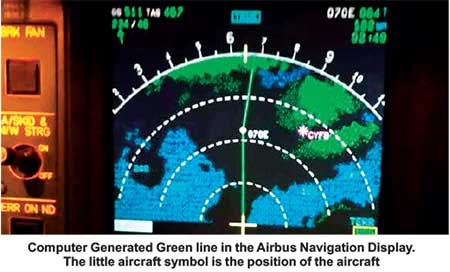
Back with SriLankan Airlines, I did many turnaround flights to Jeddah. My last flight to Jeddah was to ferry an empty Airbus A330 aircraft from London Heathrow. We flew eastwards to Zurich and then southwards to Rome and further south past Brindisi, in southern Italy and the Greek Islands, across the Mediterranean Sea to overhead the port of Alexandrea, Followed the Nile (and the Green Line) to Cairo and then across the Red Sea to Jeddah. Since we had no fare-paying passengers, except for a dead heading (flying as passengers) crew. They had organised a party (loud music and all) in the First Class section on board while my First Officer and I flew the A330 to Jeddah it certainly was lonely at the ‘pointy end’, beyond the bullet (and sound) proof Flight Deck door and had only the stars in the night sky to keep us company.
Party or no party, watching the sights of northern France, the Swiss Alps and the Matterhorn in the dusk, Roma, Italy, Greek Islands, Mediterranean Sea, port of Alexandria, Egypt and the lights in the settlements of the Nile delta and the Aswan Dam, from 40,000 feet, all in ‘one go’, as advertised in our Flight Plan, made our day. Since the station staff had put us up in a resort by the Red Sea, the next day we were able to have a ‘dip’ in the sea, before heading for home a day later.
Yes, ‘Aviation’ has changed quite a lot from the fifties. Now, with the advent of the Covid-19, let us brace ourselves for further changes which may not be anything like what we have experienced before.
- News Advertiesment
See Kapruka’s top selling online shopping categories such as Toys, Grocery, Flowers, Birthday Cakes, Fruits, Chocolates, Clothing and Electronics. Also see Kapruka’s unique online services such as Money Remittence,News, Courier/Delivery, Food Delivery and over 700 top brands. Also get products from Amazon & Ebay via Kapruka Gloabal Shop into Sri Lanka.
Features
Islamophobia and the threat to democratic development

There’s an ill more dangerous and pervasive than the Coronavirus that’s currently sweeping Sri Lanka. That is the fear to express one’s convictions. Across the public sector of the country in particular many persons holding high office are stringently regulating and controlling the voices of their consciences and this bodes ill for all and the country.
The corrupting impact of fear was discussed in this column a couple of weeks ago when dealing with the military coup in Myanmar. It stands to the enduring credit of ousted Myanmarese Head of Government Aung San Suu Kyi that she, perhaps for the first time in the history of modern political thought, singled out fear, and not power, as the principal cause of corruption within the individual; powerful or otherwise.
To be sure, power corrupts but the corrupting impact of fear is graver and more devastating. For instance, the fear in a person holding ministerial office or in a senior public sector official, that he would lose position and power as a result of speaking out his convictions and sincere beliefs on matters of the first importance, would lead to a country’s ills going unaddressed and uncorrected.
Besides, the individual concerned would be devaluing himself in the eyes of all irrevocably and revealing himself to be a person who would be willing to compromise his moral integrity for petty worldly gain or a ‘mess of pottage’. This happens all the while in Lankan public life. Some of those who have wielded and are wielding immense power in Sri Lanka leave very much to be desired from these standards.
It could be said that fear has prevented Sri Lanka from growing in every vital respect over the decades and has earned for itself the notoriety of being a directionless country.
 All these ills and more are contained in the current controversy in Sri Lanka over the disposal of the bodies of Covid victims, for example. The Sri Lankan polity has no choice but to abide by scientific advice on this question. Since authorities of the standing of even the WHO have declared that the burial of the bodies of those dying of Covid could not prove to be injurious to the wider public, the Sri Lankan health authorities could go ahead and sanction the burying of the bodies concerned. What’s preventing the local authorities from taking this course since they claim to be on the side of science? Who or what are they fearing? This is the issue that’s crying out to be probed and answered.
All these ills and more are contained in the current controversy in Sri Lanka over the disposal of the bodies of Covid victims, for example. The Sri Lankan polity has no choice but to abide by scientific advice on this question. Since authorities of the standing of even the WHO have declared that the burial of the bodies of those dying of Covid could not prove to be injurious to the wider public, the Sri Lankan health authorities could go ahead and sanction the burying of the bodies concerned. What’s preventing the local authorities from taking this course since they claim to be on the side of science? Who or what are they fearing? This is the issue that’s crying out to be probed and answered.
Considering the need for absolute truthfulness and honesty on the part of all relevant persons and quarters in matters such as these, the latter have no choice but to resign from their positions if they are prevented from following the dictates of their consciences. If they are firmly convinced that burials could bring no harm, they are obliged to take up the position that burials should be allowed.
If any ‘higher authority’ is preventing them from allowing burials, our ministers and officials are conscience-bound to renounce their positions in protest, rather than behave compromisingly and engage in ‘double think’ and ‘double talk’. By adopting the latter course they are helping none but keeping the country in a state of chronic uncertainty, which is a handy recipe for social instabiliy and division.
In the Sri Lankan context, the failure on the part of the quarters that matter to follow scientific advice on the burials question could result in the aggravation of Islamophobia, or hatred of the practitioners of Islam, in the country. Sri Lanka could do without this latter phobia and hatred on account of its implications for national stability and development. The 30 year war against separatist forces was all about the prevention by military means of ‘nation-breaking’. The disastrous results for Sri Lanka from this war are continuing to weigh it down and are part of the international offensive against Sri Lanka in the UNHCR.
However, Islamophobia is an almost world wide phenomenon. It was greatly strengthened during Donald Trump’s presidential tenure in the US. While in office Trump resorted to the divisive ruling strategy of quite a few populist authoritarian rulers of the South. Essentially, the manoeuvre is to divide and rule by pandering to the racial prejudices of majority communities.
It has happened continually in Sri Lanka. In the initial post-independence years and for several decades after, it was a case of some populist politicians of the South whipping-up anti-Tamil sentiments. Some Tamil politicians did likewise in respect of the majority community. No doubt, both such quarters have done Sri Lanka immeasurable harm. By failing to follow scientific advice on the burial question and by not doing what is right, Sri Lanka’s current authorities are opening themselves to the charge that they are pandering to religious extremists among the majority community.
The murderous, destructive course of action adopted by some extremist sections among Muslim communities world wide, including of course Sri Lanka, has not earned the condemnation it deserves from moderate Muslims who make-up the preponderant majority in the Muslim community. It is up to moderate opinion in the latter collectivity to come out more strongly and persuasively against religious extremists in their midst. It will prove to have a cementing and unifying impact among communities.
It is not sufficiently appreciated by governments in the global South in particular that by voicing for religious and racial unity and by working consistently towards it, they would be strengthening democratic development, which is an essential condition for a country’s growth in all senses.
A ‘divided house’ is doomed to fall; this is the lesson of history. ‘National security’ cannot be had without human security and peaceful living among communities is central to the latter. There cannot be any ‘double talk’ or ‘politically correct’ opinions on this question. Truth and falsehood are the only valid categories of thought and speech.
Those in authority everywhere claiming to be democratic need to adopt a scientific outlook on this issue as well. Studies conducted on plural societies in South Asia, for example, reveal that the promotion of friendly, cordial ties among communities invariably brings about healing among estranged groups and produces social peace. This is the truth that is waiting to be acted upon.
Features
Pakistan’s love of Sri Lanka

By Sanjeewa Jayaweera
It was on 3rd January 1972 that our family arrived in Karachi from Moscow. Our departure from Moscow had been delayed for a few weeks due to the military confrontation between Pakistan and India. It ended on 16th December 1971. After that, international flights were not permitted for some time.
The contrast between Moscow and Karachi was unbelievable. First and foremost, Moscow’s temperature was near minus 40 degrees centigrade, while in Karachi, it was sunny and a warm 28 degrees centigrade. However, what struck us most was the extreme warmth with which the airport authorities greeted our family. As my father was a diplomat, we were quickly ushered to the airport’s VIP Lounge. We were in transit on our way to Rawalpindi, the airport serving the capital of Islamabad.
We quickly realized that the word “we are from Sri Lanka” opened all doors just as saying “open sesame” gained entry to Aladdin’s cave! The broad smile, extreme courtesy, and genuine warmth we received from the Pakistani people were unbelievable.
This was all to do with Mrs Sirima Bandaranaike’s decision to allow Pakistani aircraft to land in Colombo to refuel on the way to Dhaka in East Pakistan during the military confrontation between Pakistan and India. It was a brave decision by Mrs Bandaranaike (Mrs B), and the successive governments and Sri Lanka people are still enjoying the fruits of it. Pakistan has been a steadfast and loyal supporter of our country. They have come to our assistance time and again in times of great need when many have turned their back on us. They have indeed been an “all-weather” friend of our country.
Getting back to 1972, I was an early beneficiary of Pakistani people’s love for Sri Lankans. I failed the entrance exam to gain entry to the only English medium school in Islamabad! However, when I met the Principal, along with my father, he said, “Sanjeewa, although you failed the entrance exam, I will this time make an exception as Sri Lankans are our dear friends.” After that, the joke around the family dinner table was that I owed my education in Pakistan to Mrs B!
At school, my brother and I were extended a warm welcome and always greeted “our good friends from Sri Lanka.” I felt when playing cricket for our college; our runs were cheered more loudly than of others.
One particular incident that I remember well was when the Embassy received a telex from the Foreign inistry. It requested that our High Commissioner seek an immediate meeting with the Prime Minister of Pakistan, Mr Zulifikar Ali Bhutto (ZB), and convey a message from Mrs B. The message requested that an urgent shipment of rice be dispatched to Sri Lanka as there would be an imminent rice shortage. As the Ambassador was not in the station, the responsibility devolved on my father.
It usually takes about a week or more to get an audience with the Prime Minister (PM) of a foreign country due to their busy schedule. However, given the urgency, my father spoke to the Foreign Ministry’s Permanent Sectary, who fortunately was our neighbour and sought an urgent appointment. My father received a call from the PM’s secretary around 10 P.M asking him to come over to the PM’s residence. My father met ZB around midnight. ZB was about to retire to bed and, as such, was in his pyjamas and gown enjoying a cigar! He had greeted my father and had asked, “Mr Jayaweera, what can we do for great friend Madam Bandaranaike?. My father conveyed the message from Colombo and quietly mentioned that there would be riots in the country if there is no rice!
ZB had immediately got the Food Commissioner of Pakistan on the line and said, “I want a shipload of rice to be in Colombo within the next 72 hours!” The Food Commissioner reverted within a few minutes, saying that nothing was available and the last export shipment had left the port only a few hours ago to another country. ZB had instructed to turn the ship around and send it to Colombo. This despite protests from the Food Commissioner about terms and conditions of the Letter of Credit prohibiting non-delivery. Sri Lanka got its delivery of rice!
The next was the visit of Mrs B to Pakistan. On arrival in Rawalpindi airport, she was given a hero’s welcome, which Pakistan had previously only offered to President Gaddafi of Libya, who financially backed Pakistan with his oil money. That day, I missed school and accompanied my parents to the airport. On our way, we witnessed thousands of people had gathered by the roadside to welcome Mrs B.
When we walked to the airport’s tarmac, thousands of people were standing in temporary stands waving Sri Lanka and Pakistan flags and chanting “Sri Lanka Pakistan Zindabad.” The noise emanating from the crowd was as loud and passionate as the cheering that the Pakistani cricket team received during a test match. It was electric!
I believe she was only the second head of state given the privilege of addressing both assemblies of Parliament. The other being Gaddafi. There was genuine affection from Mrs B amongst the people of Pakistan.
I always remember the indefatigable efforts of Mr Abdul Haffez Kardar, a cabinet minister and the President of the Pakistan Cricket Board. From around 1973 onwards, he passionately championed Sri Lanka’s cause to be admitted as a full member of the International Cricket Council (ICC) and granted test status. Every year, he would propose at the ICC’s annual meeting, but England and Australia’s veto kept us out until 1981.
I always felt that our Cricket Board made a mistake by not inviting Pakistan to play our inaugural test match. We should have appreciated Mr Kardar and Pakistan’s efforts. In 1974 the Pakistan board invited our team for a tour involving three test matches and a few first-class games. Most of those who played in our first test match was part of that tour, and no doubt gained significant exposure playing against a highly talented Pakistani team.
Several Pakistani greats were part of the Pakistan and India team that played a match soon after the Central Bank bomb in Colombo to prove that it was safe to play cricket in Colombo. It was a magnificent gesture by both Pakistan and India. Our greatest cricket triumph was in Pakistan when we won the World Cup in 1996. I am sure the players and those who watched the match on TV will remember the passionate support our team received that night from the Pakistani crowd. It was like playing at home!
I also recall reading about how the Pakistani government air freighted several Multi Barrell artillery guns and ammunition to Sri Lanka when the A rmy camp in Jaffna was under severe threat from the LTTE. This was even more important than the shipload of rice that ZB sent. This was crucial as most other countries refused to sell arms to our country during the war.
Time and again, Pakistan has steadfastly supported our country’s cause at the UNHCR. No doubt this year, too, their diplomats will work tirelessly to assist our country.
We extend a warm welcome to Mr Imran Khan, the Prime Minister of Pakistan. He is a truly inspirational individual who was undoubtedly an excellent cricketer. Since retirement from cricket, he has decided to get involved in politics, and after several years of patiently building up his support base, he won the last parliamentary elections. I hope that just as much as he galvanized Sri Lankan cricketers, his political journey would act as a catalyst for people like Kumar Sangakkara and Mahela Jayawardene to get involved in politics. Cricket has been called a “gentleman’s game.” Whilst politics is far from it!.
Features
Covid-19 health rules disregarded at entertainment venues?

Believe me, seeing certain videos, on social media, depicting action, on the dance floor, at some of these entertainment venues, got me wondering whether this Coronavirus pandemic is REAL!
To those having a good time, at these particular venues, and, I guess, the management, as well, what the world is experiencing now doesn’t seem to be their concerned.
Obviously, such irresponsible behaviour could create more problems for those who are battling to halt the spread of Covid-19, and the new viriant of Covid, in our part of the world.
The videos, on display, on social media, show certain venues, packed to capacity – with hardly anyone wearing a mask, and social distancing…only a dream..
How can one think of social distancing while gyrating, on a dance floor, that is over crowded!
If this trend continues, it wouldn’t be a surprise if Coronavirus makes its presence felt…at such venues.
And, then, what happens to the entertainment scene, and those involved in this field, especially the musicians? No work, whatsoever!
Lots of countries have closed nightclubs, and venues, where people gather, in order to curtail the spread of this deadly virus that has already claimed the lives of thousands.
Thailand did it and the country is still having lots of restrictions, where entertainment is concerned, and that is probably the reason why Thailand has been able to control the spread of the Coronavirus.
With a population of over 69 million, they have had (so far), a little over 25,000 cases, and 83 deaths, while we, with a population of around 21 million, have over 80,000 cases, and more than 450 deaths.
I’m not saying we should do away with entertainment – totally – but we need to follow a format, connected with the ‘new normal,’ where masks and social distancing are mandatory requirements at these venues. And, dancing, I believe, should be banned, at least temporarily, as one can’t maintain the required social distance, while on the dance floor, especially after drinks.
Police spokesman DIG Ajith Rohana keeps emphasising, on TV, radio, and in the newspapers, the need to adhere to the health regulations, now in force, and that those who fail to do so would be penalised.
He has also stated that plainclothes officers would move around to apprehend such offenders.
Perhaps, he should instruct his officers to pay surprise visits to some of these entertainment venues.
He would certainly have more than a bus load of offenders to be whisked off for PCR/Rapid Antigen tests!
I need to quote what Dr. H.T. Wickremasinghe said in his article, published in The Island of Tuesday, February 16th, 2021:
“…let me conclude, while emphasising the need to continue our general public health measures, such as wearing masks, social distancing, and avoiding crowded gatherings, to reduce the risk of contact with an infected person.
“There is no science to beat common sense.”
But…do some of our folks have this thing called COMMON SENSE!










